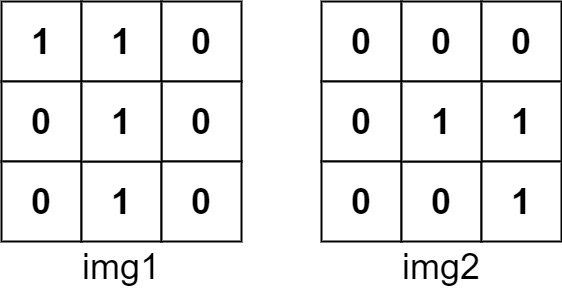Image Overlap
Input: img1 = [[1,1,0],[0,1,0],[0,1,0]], img2 = [[0,0,0],[0,1,1],[0,0,1]]
Output: 3
Explanation: We slide img1 to right by 1 unit and down by 1 unit.
The number of positions that have a 1 in both images is 3. (Shown in red)
Input: img1 = [[1]], img2 = [[1]]
Output: 1Solutions
🧠 Cpp
Last updated
